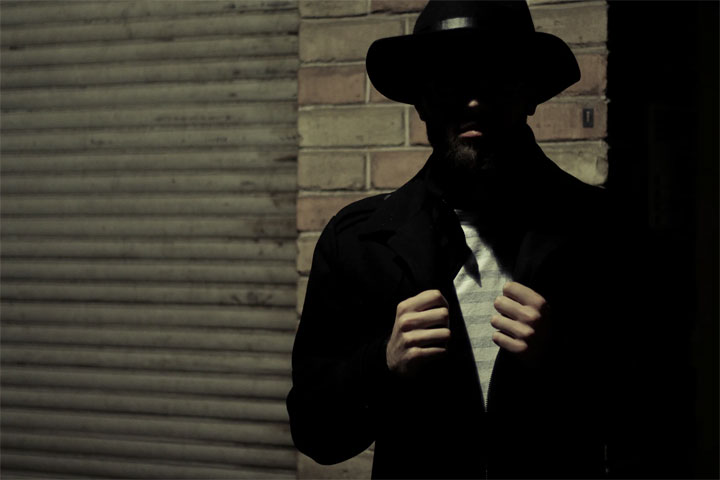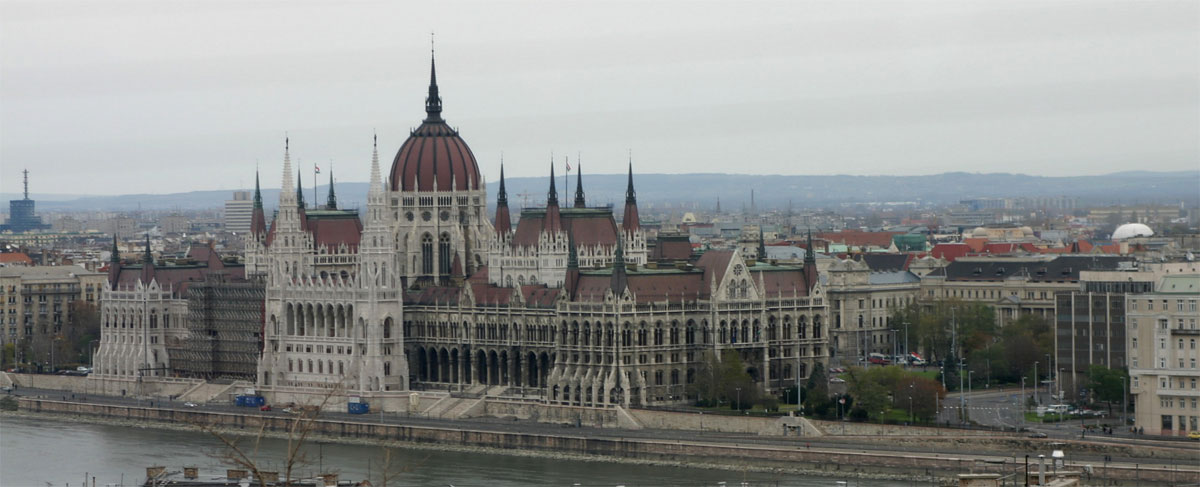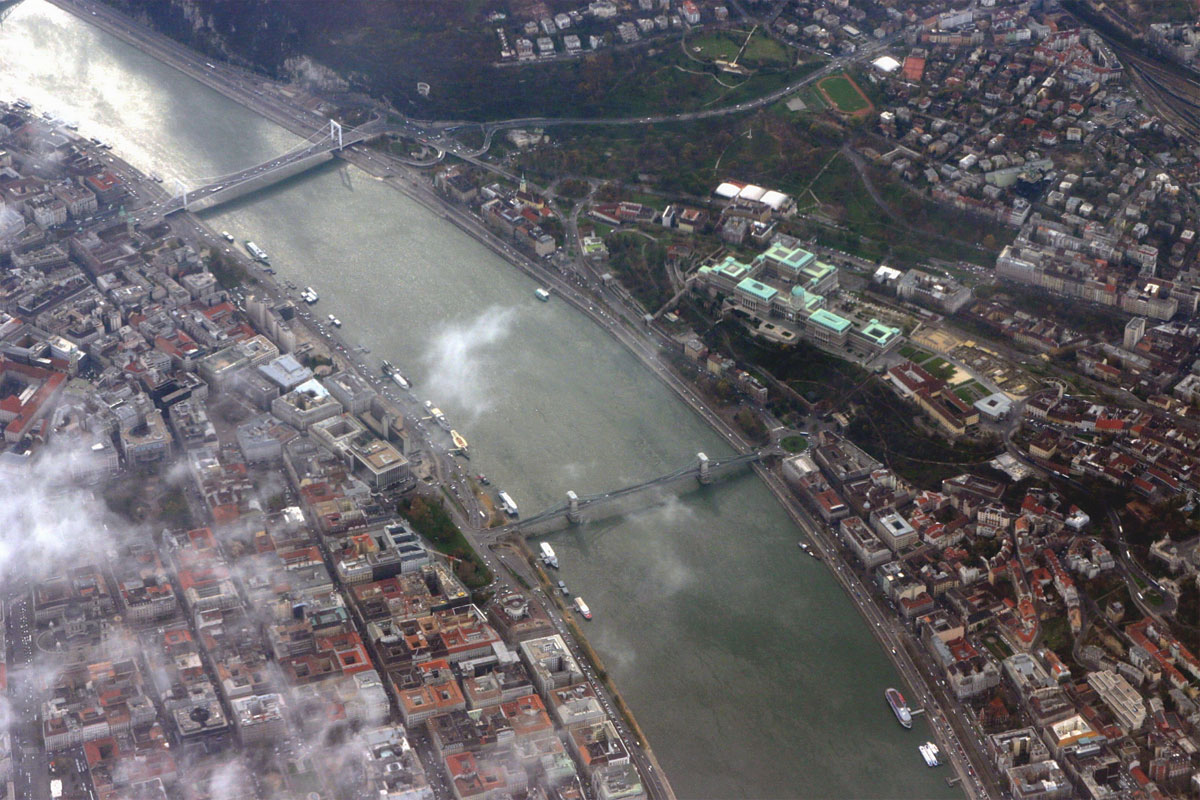


Fritz 17 - The giant PC chess program, now with Fat Fritz
The most popular chess program offers you everything you will need as a dedicated chess enthusiast, with innovative training methods for amateurs and professionals alike.
It was 1983, and I was in Budapest. It was for the third Microcomputer World Chess Championship. During my stay I met a number of people who went on to play important roles in my life and career. For instance the Polgar family — three young girls who were being trained by their father to become world class chess players. That story has been told a number of times. Today I want to tell you about an encounter with the East German team, and describe what things were like in the fading years of Eastern European communism.

This is what Budapest looked like at the time (click to enlarge), with the building of the Hungarian Parliament on the banks of the Danube river
On the evening of our arrival I was getting to know the participants of the computer chess tournament. At one stage, in the hotel restaurant, I joined the East German team for dessert and got to know them. They represented Mikroelektronik Erfurt, a company that had cloned an American processor, the Z80 by Zilog, calling it U880D. It ran at 2.5 MHz and, for the tournament, they had registered a program called Chess Master. It was (take a deep breath) 12 kilobyte in size and looked at 12–15 positions per second. The openings book contained 180 variations — there are programs today that consult a million times more. Chess Master finished the tournament in place 16 out of 18 participants, with 2.0 points in seven games. The winner was Elite A/S from California.

At the time I met and befriended the family Polgar – Zsuzsa, 14, Sofi, 10 and little Judy, who had just recently turned seven. The programmers were happy to let the girls play against their computers. I asked the winning Elite A/S author Kathe Spracklen, how the two young sisters had done in a game against the Microcomputer World Champion. "Did they beat it?" Kathy replied "No, they didn't, they murdered it, they tore it to bits, they chewed it up and spat out the pieces, they massacred the thing!" Never before or since have I seen a chess programmer so flushed with pleasure at the defeat of their program.
The competing teams came from all over the world. The Chess Master team consisted of a full-blooded programmer named Rüdiger, pudgy and full of fun; Dieter, an international chess master, lean and craggy, but also up to jokes and pranks; and Holger, who they told me was the "Aufpasser", the minder. Oops, that meant that he was a member of the STASI, the secret police, so we had to be careful what we said. No, Dieter told me, Wolfgang is one of us. And this was born out in the critical remarks and the jokes he told us about the situation in the German Democratic Republic.
After dinner all the programming teams decided to proceed to the hotel bar for beer and wine, and I called out to the East German team to come along. "No, we can’t, we have to prepare for the round tomorrow." — "Come on, guys, just for an hour. You need to get to know the other teams." But they refused. Before we left, however, I went back to them and asked if there was a problem I didn’t understand. After some hesitation they explained: "We can’t afford it. We get an allowance of just seven Marks per day on this trip." — "Okay, you will be my guest," I said. But they were reluctant to take charity. "Listen," I said, "it’s completely unfair. At the airport I exchanged 100 (West German) Marks, and they dumped thousands of Forint at me, more than I will be able to spend. It will go to waste. Please let me buy you a few beers." They reluctantly accepted, and we had a jolly evening.
The next two days were fun as well, and I grew quite fond of them, especially Rüdiger. East Germans had, and many still have, a unique, cynical sense of humour. In general they laugh a lot more than West Germans. I joined the team for lunch on day two, and took every opportunity to chat and joke with them during the rounds. They were friends.
Then on day three I came down to breakfast and, walking past their table, greeted them cheerfully. In return I got a very formal "Good morning." Puzzling. And for the rest of the day they were positively aloof and unfriendly, not reacting to my jokes and jests. I wondered what I had done wrong.
On day four we had an outing to see the sights of Budapest. In one of the churches I grabbed Rüdiger and dragged him behind a pillar. "What’s going on, Rüdiger, why are you guys ostracizing me?" I asked. "Careful," he whispered between his teeth, "there’s a secret service guy here, watching us." He pointed to a new person in our group and moved quickly away from me.
Back on the bus I somehow happened to be seated next to the person in question — I am very good at doing that kind of thing. I started talking to him, and at the next stop I cornered Rüdiger and Dieter in a private spot, with Holger standing watch. "He’s from Austria and owns a cinema theatre chain," I told them. They wouldn’t believe me: "He is posing, they are very clever. He’s here to spy on us."
I sat next to the man on the next leg as well, and after that took all three East Germans aside to report: "He is definitely Austrian — nobody can fake the accent that well. And he knows films perfectly. He discussed even obscure ones with me, quoted Woody Allen, knew American Gigolo, China Syndrome and Kramer vs Kramer. Even the Muppets and Loony Tunes. He’s genuine, I guarantee that." They remained sceptical, but in the course of the day slowly came around to accepting my judgement — especially when they sat opposite me and the suspicious person at a big luncheon table and listened to us converse. And the next day everything was back to normal.
This goes to show how tense things were, how terrified people from the communist countries were. Especially East Germany, where 25% of the population had been recruited to watch over the other 75%. Seven years later it was all over, the wall and the borders had come down, and soon East and West became one country.

A shot I took from the plane, leaving Budapest, in 1983, with poignant memories of the final year of the communist regime.
I have one more episode in Budapest to narrate. One of the teams at the championship was headed by a chess computer manufacturer, and we were on the same plane back to Germany. At the airport he asked a young lady, a Hungarian student working at the university on her PhD who had been looking after us, how he could exchange Forints back into Marks. "That is impossible," Rita said, "You can’t purchase foreign currency with Forint, not without applying and getting permission from the government."
So what could he do with the cash he had left over? You can’t exchange it in Germany, where the Forint is practically worthless. In the end he gave Rita the wad of cash and said, "Here, you dispose of this." Just before our departure she told me, a bit shaken: "I counted what he handed over to me — it is more than I earn in half a year."
This article was originally published in The Friedel Chronicles, my biographical and general interest blog. If you found it interesting, you can read The fall of the Berlin Wall, which describes one of the most joyous days of my life. It has, however, no chess content – except a bit about Garry Kasparov predicting the fall.